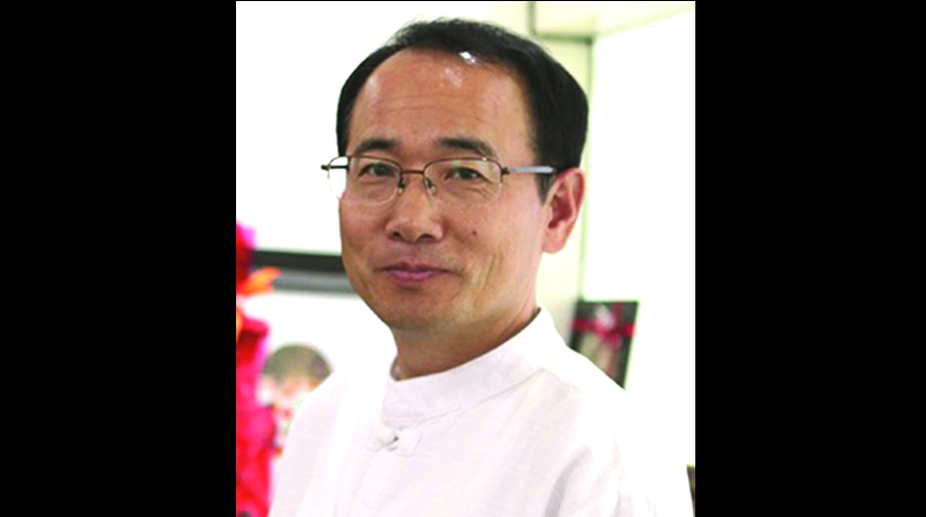Anushka Sen honored for strengthening India-Korea ties
Anushka Sen is awarded for her efforts in strengthening India-Korea relations, celebrating her impact in entertainment and cultural collaboration.

Kim Kum-Pyoung
Kim Kum-Pyoung has been the Director of the Korean Cultural Centre in India since 2011. During the last six years,he has truly acted as the cultural ambassador of his country in India. He has held important positions in the past also. Prior to his posting in India, he was the Cultural Attache in Japan and First Secretary (Culture & Press) to the European Union (EU).
In this interview to Ashok Tuteja, he talks about the activities of the Korean Cultural Centre and how it is playing an important role in promoting India-Korea cultural links. Excerpts:
Advertisement
What role does the Korean Cultural Centre play in promoting cultural exchanges?
Advertisement
As the press and culture department of the Embassy of the Republic of Korea, Korean Cultural Centre, India organises various cultural and educational workshops and events about culture, sports and youth exchange. Our core projects focus on Korean pop cultures, Korean language and student exchange programmes aiming at encouraging young generations of both countries to understand each other mutually.
K-Pop Contest and Korea Festival, which have been annually held with the enthusiastic participation of young generation in India since 2012, are examples of such events.
How many students are currently studying the Korean language at the Korean Cultural Centre?
Currently, we have 200 students studying for nine hours per week in the weekend and weekday classes, which are conducted by highly skilled Korean teachers. There are three semesters in a year.
How keen are Indian students to look for job opportunities in South Korean after learning the Korean language?
Most students at the King Sejong Institute focus on further studies in Korea and getting a job in India through their Korean language skills. The King Sejong Institute has classes for the Korean language proficiency test 'TOPIK', which is a pre-requisite to placements in Korean universities and companies. Korean Cultural Centre holds regular job fair events for them in collaboration with corporations such as Samsung and Concentrix India.
Many Koreans trace their origins to Suriratna, a princess from Ayodhya who married the Korean King Kim Suro. Could you give us some details on this facet of India-Korea relationship?
Princess Heo (Suriratna) is said to have married King Kim Suro of the Gaya Kingdom in AD 48, and their descendants became the biggest clan in Korea. Korean clans 'Kimhae Kim', 'Kimhae Heo', and 'Incheon Lee' comprise roughly 8 per cent of the Korean population.
I also belong to the Kimhae Kim clan and consider myself as a descendant of Princess Heo. Feeling a deep connection with India because of the legend of Princess Heo, many Koreans have an interest in India and recognise India as a cultural, political and economic partner for future.
How popular are Hindi movies in South Korea and who are the most popular Indian actors?
Bollywood movies have gotten lots of attention after being highlighted multiple times in international film events, such as Busan International Film Festival. Three Idiots attracted over 400,000 Korean audiences in 2011 when it was officially screened in Korea. Rave reviews led to rescreening in 2016. My Name is Khan had 380,000 viewers… so you could say that Aamir Khan and Shahrukh Khan are well known stars in Korea.
With the recent International Film Festival of India (IFFI) Goa held in 2016, which featured Korea as the focus country, we expect to expand mutual exchange in the film industries.
What steps are you taking to further strengthen cultural links between India and South Korea?
Starting this year, we will support a field trip to Korea during school vacation. KPop contests will be held at 11 places in India: Delhi, Mumbai, Chennai, Kolkata, Patna, Bengaluru, Odisha, Hyderabad, Mizoram, Nagaland and Guwahati from April to July.
Advertisement